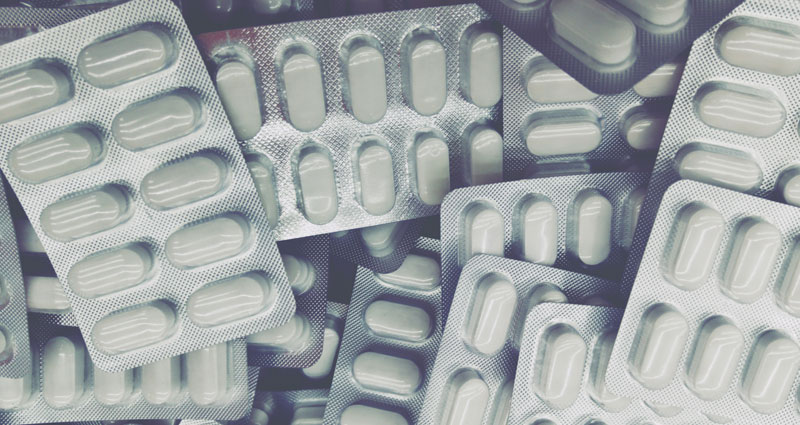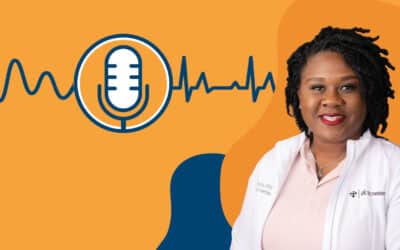No one wants simple, easy treatments for COVID-19 more than our hardworking healthcare team members taking care of the sickest patients. And while we can’t dispel all the myths around potential COVID-19 treatments, we asked Dr. Christopher Thomas, medical director of System Quality and Patient Safety and a member of our COVID Task Force, to help us understand the latest information about the treatments we’re using now.
The best treatment for any condition is prevention, and we have three safe and effective vaccines that work to prevent serious illness, hospitalization and death from COVID-19 infection. Choosing to get vaccinated is a safe choice and the best way to take care of your health during this fourth pandemic surge. Vaccination, along with continued mask wearing in public, physical distancing and frequent hand washing, are individual choices we can make that will collectively get us out of this pandemic.
What Doesn’t Work
Leave the Ivermectin for the Animals
You have probably heard of Ivermectin, an anti-parasitic used to treat heartworms in animals and some parasitic worms in people. Early in the pandemic there was some hope that its antiviral properties could work on COVID-19. Small observational trials demonstrated potential hope. However, the largest positive study to date study was withdrawn from the medical literature due to data falsification and ethics violations.
We’ve tried a lot of things during this pandemic. Some have worked, some have not. The largest best performed trial to date, the TOGETHER trial, shows that Ivermectin does not work to prevent or treat COVID-19.
People who wrongly believe Ivermectin can prevent or treat COVID-19 may resort to getting it from a farm supply store or veterinary office. Taking drugs designed for animals can be dangerous not only because drugs for large animals like horses and cows are highly concentrated but also because such doses can be toxic for humans. The inactive ingredients in animal products aren’t evaluated for use in people and can create problems of their own.
Taking any drug for an unapproved use can be very dangerous. Ivermectin can interact with other medications, including blood thinners. Taking too much can cause severe side effects such as nausea, vomiting, diarrhea, low blood pressure, allergic reactions, dizziness, problems with balance, seizures, coma and even death.
Patients with COVID-19 who have self-treated with Ivermectin can end up in the hospital as their COVID-19 disease worsens.
Hydroxychloroquine Doesn’t Work Either
Earlier in the pandemic, this medicine was briefly authorized for emergency use, but the FDA withdrew that authorization as research showed hydroxychloroquine does not work to treat or prevent COVID-19. There is a potential for heart rhythm disturbances.
What About Supplements to Prevent or Treat Infection?
A multivitamin with daily recommended doses of vitamins and minerals is OK to take, but it won’t prevent COVID-19 infection. High doses of vitamin C, vitamin D or zinc do not work to prevent or treat COVID-19, and adverse effects can happen. The best way to reduce your risk of getting very sick or hospitalized with COVID-19 is to get fully vaccinated.
Other Treatments You May Hear About
Monoclonal Antibody Therapies
COVID monoclonal antibody therapies are available to treat COVID-19 in patients at high risk of getting very sick or needing to be hospitalized. Available under FDA Emergency Use Authorization, the treatments are lab-made versions of antibodies our bodies make naturally to fight invaders, such as the coronavirus. Given by IV in a clinic or hospital, the therapies attack the coronavirus’ spike protein, making it harder for the virus to attach to and enter our cells.
Fluvoxamine
This medicine has shown some benefits in non-hospitalized patients with few other health problems. Doctors are mindful of bad interactions with warfarin and other similar drugs.
Budesonide Inhaler
Patients with early, mild symptoms of COVID-19 may benefit from this inhaler, usually prescribed for asthma or COPD to prevent symptoms.
Treatments in the Hospital
When patients with COVID-19 must be admitted to the hospital and require supplemental oxygen, there is one therapy that has been demonstrated to help: steroids.
Medical teams use other treatments trying to help hospitalized patients with the inflammation and cascade of complications that can arise with COVID-19, including blood thinners and other drugs, all of which present risks of their own.
Getting Better at Home
In general, most people infected with COVID-19 have mild illness and can recover at home with acetaminophen, drinking plenty of fluids and resting. Follow the Centers for Disease Control and Prevention’s guidelines for what to do if you test positive. Talk with your primary care provider to decide the best care for you. You can connect with one of our skilled physicians here.




